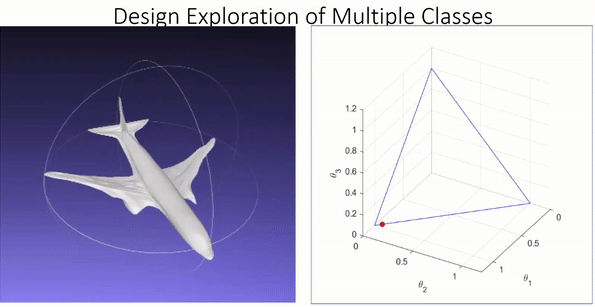
Dr. Conrad Tucker
Professor, Mechanical Engineering, Biomedical Engineering, Machine Learning, Robotics Institute
- Wean Hall 4202
- 412 268 3353
Wean Hall 4202
Carnegie Mellon University
5000 Forbes Avenue
Pittsburgh, PA 15213
Education
- B.S., Mechanical Engineering, Rose-Hulman Institute of Technology, 2004
- M.S., Industrial & Systems Engineering, University of Illinois, Urbana-Champaign, 2007
- M.B.A., Business Administration, University of Illinois, Urbana-Champaign, 2009
- Ph.D., Industrial & Systems Engineering, University of Illinois, Urbana-Champaign, 2011
Bio
Dr. Conrad Tucker is an Arthur Hamerschlag Career Development Professor of Mechanical Engineering and holds courtesy faculty appointments in Machine Learning, Robotics, and Biomedical Engineering at Carnegie Mellon University. His research focuses on the design and optimization of systems through the acquisition, integration and mining of large scale, disparate data.
Dr. Tucker has served as PI/Co-PI on federally/non-federally funded grants from the National Science Foundation (NSF), the Air Force Office of Scientific Research (AFOSR), the Defense Advanced Research Projects Agency (DARPA), the Army Research Laboratory (ARL), the Office of Naval Research (ONR) via the NSF Center for eDesign, and the Bill and Melinda Gates Foundation (BMGF). In February 2016, he was invited by National Academy of Engineering (NAE) President Dr. Dan Mote, to serve as a member of the Advisory Committee for the NAE Frontiers of Engineering Education (FOEE) Symposium. He received his Ph.D., M.S. (Industrial Engineering), and MBA degrees from the University of Illinois at Urbana-Champaign, and his B.S. in Mechanical Engineering from Rose-Hulman Institute of Technology.
Research
Our research explores the use of machine learning methods that predictively improve the outcome of product design solutions through the acquisition, fusion and mining of large-scale, publicly-available data. It has been reported that 70-80% of the costs of a product are determined during the design phase. Here, the term product is used in a general sense to refer to physical/digital systems that are guided by user needs, and that require domain knowledge to create. Towards enhancing the efficiency of the design process and creating personalized solutions, our research focuses on three thrust areas, outlined below.
Research Thrust 1: Product Feature Discovery and Quantification: It is often stated that product customization is limited by the difficulty of addressing individual needs and converting them into product specifications. This research thrust seeks to advance machine understanding of user needs through the mining of large scale, publicly-available data (e.g., social media networks such as Twitter) for scalable and efficient product customization.
Research Thrust 2: Conceptual Design Generation and Evaluation: This research thrust seeks to create scalable ways to generate personalized design concepts, based on individuals’ unique needs. The evaluation of generated designs is grounded in a fundamental understanding of our physical universe and the laws that govern it. We explore ways to teach machines how to learn the relationships between design concepts and the environments/constraints that they must operate in.
Research Thrust 3: Information Veracity and Security: Ascertaining the veracity and security of data in the information age is a challenge both for humans (e.g., communicating within social media networks) and machines (e.g., training data for artificial neural networks). A lack of data veracity has the potential to “fool” both machines, as well as humans into achieving unintended outcomes/output. We explore ways to ensure the veracity of data used to train machine learning models in order to avoid garbage-in, garbage-out outcomes during the design process.
Our lifelong research and education goals are tightly integrated and focus on advancing personalization, both from a design and learning perspective.
Research Interests: machine learning, engineering design, neuroscience-inspired artificial intelligence, robotics and control
Awards and Recognition
- Arthur Hamerschlag Career Development Professorship ( Read More)
- ASME Best Paper Award, 2019
